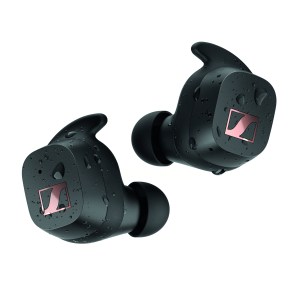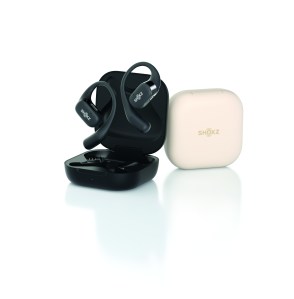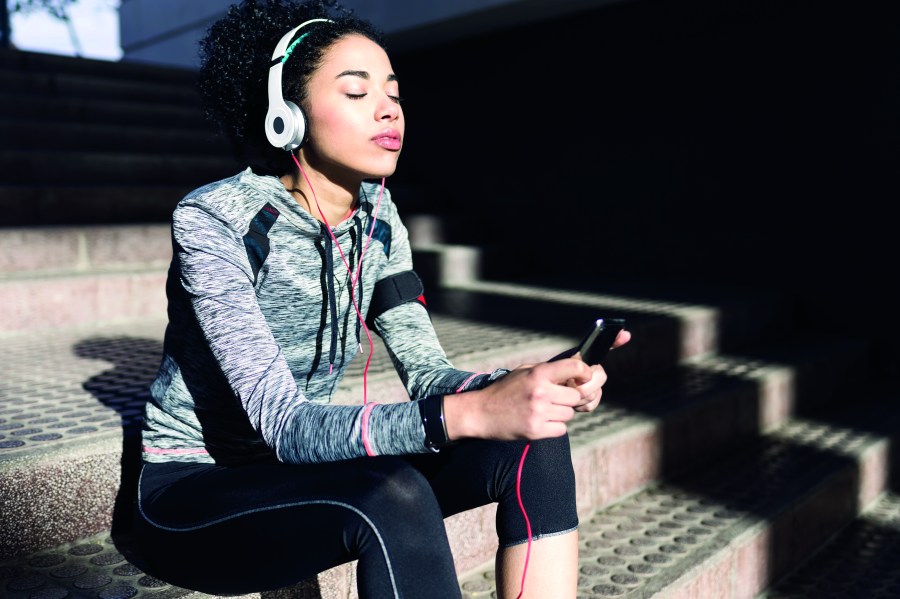We all know exercise makes us feel good, but listen to music as you work out and you’ll double the mental health benefits.
It can fire you up for HIIT, calm your heart in savasana and even increase your endurance on a gruelling long-distance run, but did you know exercising to music is good for your emotional wellbeing, too? Music alone, even without exercise, is a powerful pill for its mental health benefits – it alleviates stress, anxiety and depression, and reduces fatigue – but add a workout to the mix and the right soundtrack can encourage positive psychological and psycho-physiological changes (think lower states of perceived exertion). So just how does music achieve these amazing results? As with so many things, it starts with your brain.
All in the mind
When you’re pounding the pavements, I feel the power ringing in your ears, you’re not just getting a mental boost from the lyrics, a cascade of physiological changes is taking place in your body. First up, the auditory cortex is stimulated, the part of the brain associated with sound and which allows you to hear/ make sense of sound waves. ‘Music also acts on your motor system in the cerebellum, deciphering rhythm and helping you perform rhythmic movements,’ says Marianne Rizkallah, music therapist at North London Music Therapy (northlondonmusictherapy.com). After this, the mental health benefits start to get really interesting…
‘Music activates the limbic system in the brain, which deals with our emotions and positively impacts memory,’ says Rizkallah. Key components of this system – such as the amygdala (the emotional processing centre) and the hippocampus (which helps consolidate memories) – allow you to experience positive emotional responses to music which you can draw upon each time you tie up your trainers. ‘Music also acts on the prefrontal cortex, which regulates your thoughts, actions and emotions,’ adds Rizkallah. And there’s more. Music creates chemical reactions in your brain, with one study in the journal European Archives of Psychiatry and Clinical Neuroscience reporting an increase in feelgood hormone serotonin when participants listened to pleasant melodies.
But exercising to music doesn’t just promote happy vibes, research shows it also helps boost motivation. There are three reasons for this, according to sports psychologist, Dr Josephine Perry*. ‘First, music increases the movement of dopamine
(a brain chemical involved in pleasure), which enhances your mood,’ she says. ‘Second, music can help you get to your prime level of physical and mental arousal. Finally, music doesn’t just make you enjoy your runs more, it improves performance.’ Put them all together and you can see why it’s so powerful.
Farewell to fatigue
Another reason music helps with motivation is its positive effect on energy levels. Research shows working out to music
with a fast tempo delays exercise-related mental fatigue, while calming music improves your recovery. It also makes you feel more capable. One study in Perceptual and Motor Skills found cyclists’ rate of perceived exertion (RPE) was significantly lower while listening to music during endurance cycling, and other research found similar results for high-intensity sprints and resistance exercise.
It seems these effects may, in part, be a result of dissociation, where listening to music diverts your attention from your efforts and discomfort. If you’re sweating away, heart pounding and muscles aching, although your body will be sending feedback to your brain telling you that you need a break, the cognitive requirements (and pleasing effects) of listening to music compete for your brain’s conscious attention, taking your thoughts away from tired limbs. A similar process could be responsible for the known effects of music in reducing the sensation of pain while training. The scientific jury is still out on that one, although research suggests increased endorphin release could play a part, too.

Name that tune
If all this is making you reach for your earbuds, it’s worth following a few guidelines when compiling your workout playlist. It may sound obvious, but you need to like the music you’re listening to, as confirmed by a 2021 study from the University of Edinburgh on participants running 5K with or without self-selected play tracks. The results showed being mentally fatigued had no effect on participants if they listened to music while they ran, but, says Dr Perry, ‘the researchers found it was really important the runners picked their own playlist. Having something pumped into your ears you don’t enjoy will stop you receiving the benefits. The right playlist can be a great tool to amp up or dampen down, but it is important you think about the purpose before you create it, so it does its job well.’
Feel the beat
To choose appropriately, it’s a good idea to think about the tempo or beats per minute (bpm) of the music you’ll train to. Studies show a well-chosen tempo can boost performance, partly due to matching your stride or cadence to the beat, but also because of delayed fatigue and increased capacity. The preferred tempo for cycling, for example, is between 125-140bpm, while treadmill running is 123-131bpm.
Dr Costas Karageorghis, professor in sport and exercise psychology at Brunel University, has studied this area extensively, and concludes, ‘A well-selected playlist can modulate how you feel even at relatively high-exercise intensities. We came
to the conclusion that, during high-intensity exercise, there is a ceiling for music-tempo preference of around 140bpm.’
In general, guidelines are to choose music with a relatively slow beat (70-100bpm) for warming up, so you don’t use up too much psychological energy. In the early stages of your workout, the optimal bpm is around five per cent above your working heart rate then, at full effort, up to 140bpm, as suggested earlier.
As Rizkallah says, ‘There’s plenty of evidence for music’s effect on the autonomic nervous system, including increasing your heart rate as well as lowering it.’ Which, in essence, means you can use music to both calm or stimulate you depending on what you need. Happy listening…
Mindful running: how to run more mindfully
Tech on trial
If you want to make the most of music while you exercise, you’ll need a good pair of Bluetooth earbuds/headphones – ones that stay put however active and sweaty you get. Here’s our pick of the best:

In-ear buds: Sennheiser Sport True Wireless
These earbuds should fit well whatever size your ears as you can tailor the three bud and four fin options to suit your preference (we found we needed a different set-up for each ear!). Add in the IP54 (safe against water spray or sweat) and they’re ideal for fast-paced workouts or drizzly runs. You can wear the buds ‘open’ to hear what’s going on around you but minimise body noise such as your breathing and footfalls, or ‘closed’ to block outside sounds. Nine hours of playback on one charge means they’ll keeping you going even on an ultra-marathon, while sound quality is excellent. £119.99, sennheiser-hearing.com

Over-ear buds: Shokz Openfit
With brand new technology, these open-ear earbuds have a wonderful rich sound, all the while letting you hear ambient sounds around you. A five-minute charge gives you an hour’s listening; a full charge, seven hours (with 28 hours’ charge stored in the carrying case). They’re IP54, and in-ear controls let you skip forward and back a track or pause sound to take a phone call. On trial, they were so comfortable we hardly knew we were wearing them (including when we had our glasses on) and they stayed put for running, weights and even using the rebounder. As a bonus, they’re great for side-sleepers, too. £179, uk.shokz.com

Headphones: Beats Studio Pro
Love clever tech? Beats delivers, and then some. When you want total immersion in your workout, say on the treadmill in a noisy gym, this completely re-engineered headset monitors and filters out external noise 48,000 times a second. The dynamic head tracking (think being surrounded by 64 speakers in a theatre and the difference in sound as you turn your head) really did make us feel we were in a studio when listening to the full-bodied, multi-layered sound. With up to 40 hours battery life (a 10-minute charge gives four hours of listening) you won’t just use it in the gym, but for home workouts, movies and more. £349, beatsbydre.com








